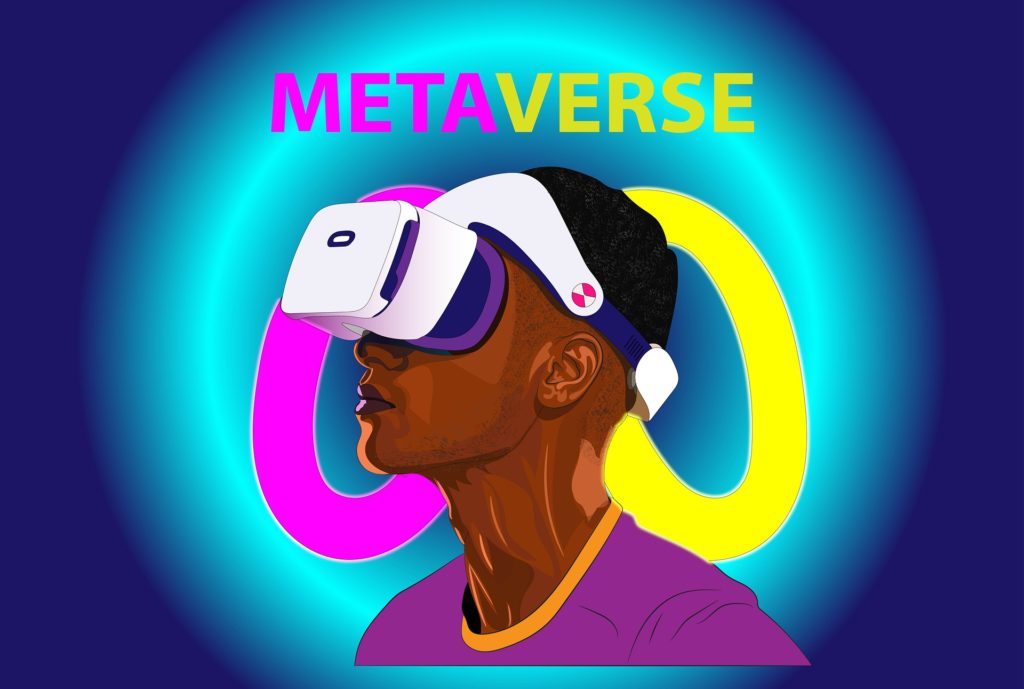By Lior Charka, VP of Product, Outbrain
In October 2021, Facebook rebranded itself to Meta. The decision comes at a time of decline for the social media giant, which lost daily users for the first time in its 18-year history in the final quarter of 2021 as new competitors such as TikTok stole their market share.
For many though, the writing had been on the wall, with Facebook experiencing sustained criticism over mental health, data privacy and consumer protection issues.
And so, the rebrand may come as little surprise as Meta attempts to not only distance itself from Facebook but also to reflect its increased focus on building the metaverse – a network of 3D virtual worlds designed to support social connection.
At this crossroads for the brand, the decision heralds a new start for Meta but whether it succeeds or not could depend heavily on the direction it takes the metaverse in. It is likely this move signifies another power grab, and desire to control a large portion of the future of the web (which many refer to as “web3”).
In contrast, the intended purpose and promise of the Metaverse and web3 is decentralisation — the Metaverse and blockchain technologies have the potential to decentralise power and return it back to individual publishers, media owners, brands, and consumers.
The latter direction is what’s needed, and what holds the most potential. So how will Facebook, now “Meta,” fit in?
The dawn of the Metaverse
The beginning of Meta can be traced back to the Worldwide Developers Conference on June 22, 2020, when Apple unveiled iOS 14; its mobile operating system. Since then, it has been clear that the Identifier for Advertisers (IDFA) – used across the mobile app ecosystem for targeting, attribution and exclusion – would cease to exist. The impact of the announcement was huge, signalling Apple’s decision to prioritise the data protection of its users over the ability for mobile apps to optimise their use of consumer data.
One of the apps most affected by this change is Facebook, acknowledging that “ads personalisation and performance reporting may be limited for both app and web conversion events.” In fact, in testing last year, Facebook said it found that revenue for publishers dropped 50% when personalisation was not an option in ad campaigns. It argued that this change would impact small businesses, but its appeal ultimately fell on deaf ears. We’ve also seen what impact the Apple privacy changes had on Facebook in the last earning call when it was said that Facebook lost around $10 billion from these changes.
Faced with these new regulations, Facebook announced its rebranding and pledged significant investment into developing the metaverse.
By owning its own (virtual) world, the Metaverse presents unique opportunities to control the user journey. In a wild west with little regulation binding its users and commercial partners, Meta is free to make its own rules on user tracking and privacy. It’s a topic that is being carefully scrutinised, particularly as the metaverse is a relatively new concept for many regulatory bodies.
Marketing opportunities in the metaverse
As the metaverse continues to find its way in the mainstream, it is gradually carving out a role for itself in the app ecosystem and, naturally, for brands pursuing marketing campaigns. In a patent submitted earlier this year, Meta announced the ability for third parties to sponsor objects in the metaverse. As consumers increasingly adopt Meta’s VR technology, brands will increasingly need to turn their attention to the metaverse and explore how they can use contextual advertising to reach consumers.
We may be some way off that possibility becoming a reality however. Currently the number of users in the metaverse remains low, meaning brands may not see much ROI yet. On top of that advertisers will need to prepare to work with different media assets and would need to create content tailored to this new VR world. That keeps us wondering what will happen with SMBs? Will they be able to create content that will work well in the metaverse? And could this mean that advertising in the metaverse will be an exclusive club where big brands and agencies spend but SMBs are out of the game? Meta is essentially creating another walled garden that continues to live outside of the privacy and regulation that exists in the physical world and it remains to be seen how the misinformation issues that have plagued Meta in the past, will repeat in the metaverse.
The metaverse could also have ramifications on publishers, reducing content consumption on open web platforms. Already, some publishers are exploring how they can get a stake in the new virtual reality game. For example, the New York Times launched an augmented reality reporting project with Facebook in 2020. However, for many the arrival of the metaverse onto the scene makes it even more important to protect the open web – a place where publishers can strive independently of platforms who could wield too much power and influence over the content it hosts.
For now, it seems Meta will continue to grow and explore the full potential of the metaverse for consumers and businesses. As surprising as the decision might have seemed in the beginning, it makes a lot of sense in the lens of privacy, user identity, and a desire to have more autonomy when managing a user’s experience on their platform.
For marketers, advertisers and publishers, the challenge is ensuring they remain on top of the latest metaverse developments and consider just how virtual worlds could be leveraged for tailored, advertising and marketing campaigns. With the metaverse, it’s not so much a question of if, but when.









